What if Su-ho had never slipped into a coma? Where would Su-ho and Si-eun’s friendship have ultimately headed?
⚠️ 경고: 이 포스트는 청소년들의 심리와 정신질환에 대한 다소 어두운 주제를 다루고 있어서 불편할 수 있습니다. 트리거 요소가 있을 수 있으므로 부담스럽다면 다른 포스트를 읽으시길 권유 드립니다.
⚠️ Trigger Warning: This post tackles some pretty heavy psychological themes related to teenagers that might hit close to home. There could be triggering content ahead, so if you’re feeling overwhelmed, feel free to skip this one and check out my other posts instead.
📢 공정 이용 고지: 이 포스트는 교육적 분석, 비평, 해설 목적으로 공정 이용 원칙에 따라 “약한영웅” (© Wavve/Netflix)의 저작권 자료를 포함하고 있습니다. 모든 권리는 원작자에게 있습니다.
📢 Fair Use Notice: This post contains copyrighted material from “Weak Hero” (© Wavve/Netflix) used for educational analysis, criticism, and commentary purposes under the fair use doctrine. All rights belong to the original creators.
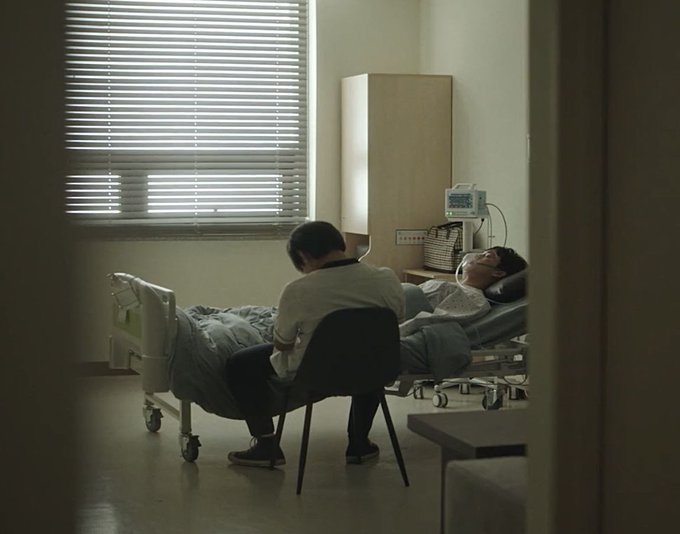
📍 이 주제에 대한 원문을 읽고 싶으시면 “What If Su-ho Had Never Fallen Into a Coma? Where Would Su-ho and Si-eun’s Friendship Have Led?” 를 클릭해주세요.
📍 If you’d like to read the original version of this topic, click on “What If Su-ho Had Never Fallen Into a Coma? Where Would Su-ho and Si-eun’s Friendship Have Led?”
상사가 나의 K드라마 열병을 알아차린다면…
상사나 직장 동료들이 내가 K드라마 분석에 빠져서 업무에 지장이 생길 정도라는 걸 알아 차린다면… 차라리 우주 먼지로 사라지는 걸 택할 것이다. (솔직히 상사는 내가 약간 얼이 빠져있는 걸 눈치챈 것 같다. 타이핑을 하다가 멍하니 천장을 바라보는데, 옆에서 보면 마치 깊은 철학적 사유에 빠져있기라도 한 것 같은 모양새지만, 내가 요새 휴대폰을 들고 화장실에 갔다가 돌아오기까지 휴게 시간이 점점 길어지고 있어서 그가 눈치 채지 못할리가 없다고 본다…)
If my boss or colleagues ever caught wind of how deep I’ve fallen down the K-drama analysis rabbit hole to the point where it’s messing with my work performance… I’d rather just turn into cosmic dust and vanish into thin air. (Honestly, I think my manager has already picked up on the fact that I’m a bit spaced out lately. I’ll be typing away and then just zone out staring at the ceiling – from the outside it probably looks like I’m lost in some deep philosophical contemplation, but the dead giveaway is how my bathroom breaks with my phone keep getting longer and longer. There’s no way he hasn’t clocked that…)
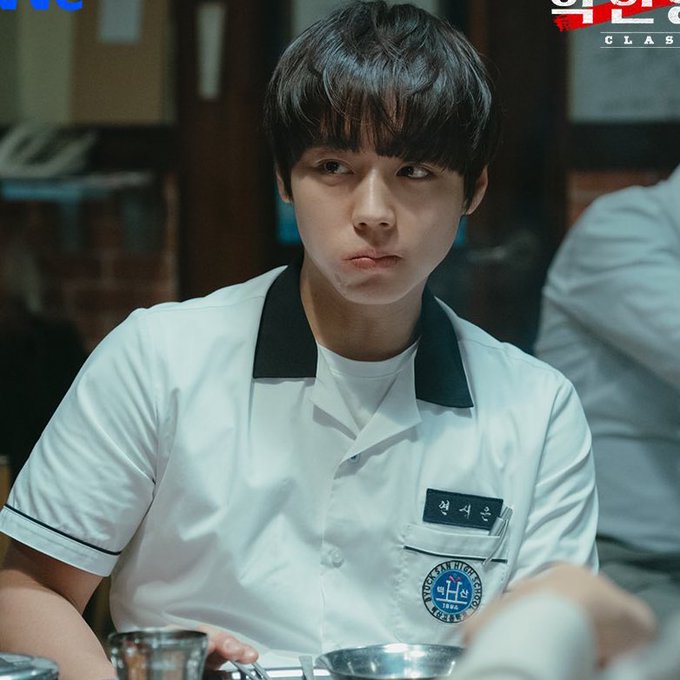
최근에 유튜브 채널에 늘 열성적으로 댓글을 남기는 코멘터 분과 (그녀는 캐네디언이다) TV 쇼에 나오는 가상의 캐릭터들에게 우리가 너무 몰입하고 있는 건 아닌지 자조적인 농담을 나눴는데… 어쩌면 이 드라마의 팬들 사이에서 ‘유버지’라고 불릴 정도로 존경받는 유수민 감독님과 연출진들이 의도한대로 우리는 그저 정직하게 (?) 걷다가 토끼 굴에 빠져서 나오지 못하고 있는 거라고 보았다. 이런 달콤한 (?) 지뢰를 사방에 뿌려놓았는데 어떻게 밟지 않을 수 있을까?
Recently, I was cracking self-deprecating jokes with one of my most dedicated commenters (she’s Canadian) who always leaves thoughtful responses on my YouTube channel about whether we’re getting way too invested in these fictional TV characters… But maybe we’re just honestly falling down the rabbit hole exactly as Director Yoo Soo-min and the production team intended – the same director who’s so revered among Weak Hero fans that they call him “Yuberji.” I mean, when you’ve got these sweet little landmines scattered all over the place, how could we possibly avoid stepping on them?
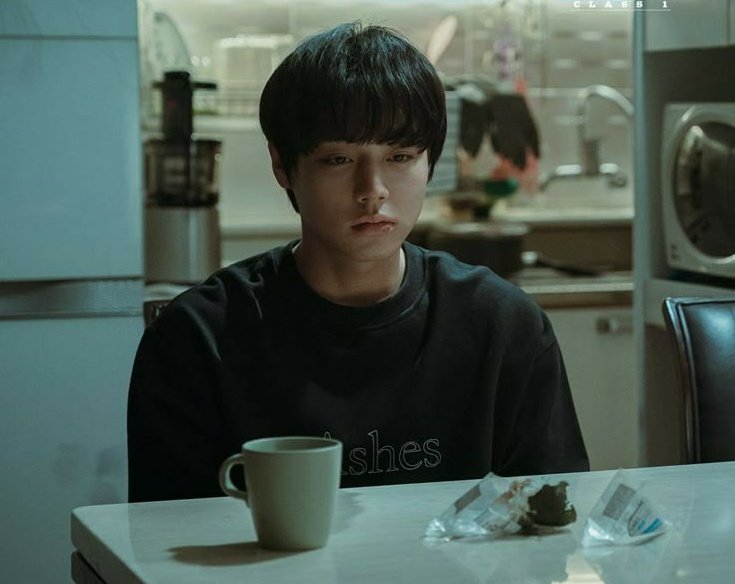
유수민 감독님은 약한영웅 각본을 집필하는 과정에서 실제로 10대들의 채팅방에 잠입했다고 한다. 패션 그룹, 스터디 서클, 건강 포럼, 심지어 우울증을 앓는 청소년들이 모여있는 챗팅방까지… 나이와 이름을 속이고 들어가서 진짜 10대들이 어떻게 지내고 있는지 파악하려고 노력하셨다고 한다. (약한영웅을 처음 볼때는 귀엽고 잘생긴 배우들의 얼굴에 시간 가는 줄 모르고 빠져들지만, 두번..세번.. 회차를 거듭하며 정주행 하다보면, 드라마가 암시하는 청소년들의 심리적인 장애와 문제, 사회적 문제 – 특히 이혼가정, 조손가정 그리고 학대를 일삼는 부모의 그늘 안에서 비틀리며 자라나는 소년들의 현주소 – 를 매우 심도있게 건드리고 있음을 모를 수 없다) 유 감독님이 이 잠입 활동에서 가장 큰 충격을 받은 부분은, 스트레스로 인하여 정신건강 전문의를 만나고 수면제를 처방받는 아이들이 얼마나 많은지 깨닫게 된 점이라고 한다.
Director Yoo Soo-min actually went undercover in teenage chat rooms while working on the Weak Hero script. Fashion groups, study circles, health forums, even chat rooms where teens struggling with depression would gather… He disguised his age and name to get a real sense of what teenagers are actually going through. (When you first dive into Weak Hero, you get swept away by the cute, good-looking actors without even noticing time fly by, but as you binge-watch it for the second… third time… you can’t help but notice how deeply the drama digs into the psychological issues and problems facing teenagers, the social issues – especially the twisted reality of boys growing up warped in the shadows of divorced families, grandparent-led households, and abusive parents.) What hit Director Yoo the hardest during this undercover work was discovering just how many kids were seeing mental health professionals and getting prescribed sleep medication because of stress.
유수민 감독님의 인터뷰에서:
From Director Yoo Soo-min’s interview:
10대들의 오픈채팅방은 엄청나게 다양해요. 패션방, 스터디방, 건강방, 우울증방 등등… 나이와 이름을 속이고 들어가서 최대한 말을 안 하며 참여했죠. 그러면서 깨달은 건 트렌드는 바뀌어도 본질은 우리가 어렸을 때와 똑같다는 거였어요. 반대로 놀란 건 우울증방이었어요. 생각보다 많은 아이들이 정신과에 가서 수면제를 처방받고 있더라고요. 스트레스에 시달리며 살아가는 젊은이들이 이렇게 많다는 걸 알고 충격받았습니다.
Teenagers’ open chat rooms are incredibly diverse—fashion rooms, study rooms, health rooms, depression rooms, and so many more. I disguised my age and name to slip into those spaces, keeping my words to a minimum while participating. What I came to realize through this was that while trends may shift, the core essence remains exactly the same as when we were young. What caught me off guard, though, was the depression rooms. Way more kids than I expected were going to psychiatrists and getting prescribed sleep medication. I was genuinely shocked to discover that so many young people are living under this kind of stress.
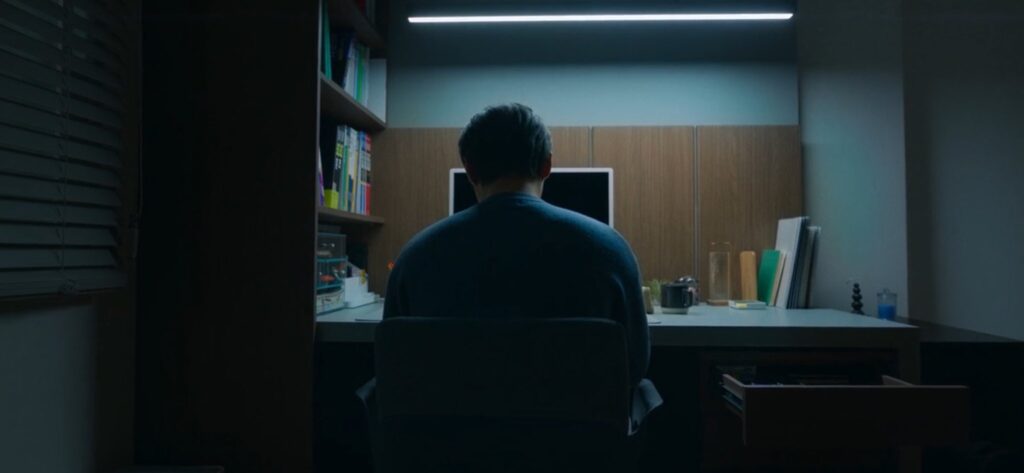
시즌 1과 시즌 2에서 시은의 방을 비교해보면 극명한 차이가 보인다. 모든 게 메마르고 생기가 없어졌고, 소년의 공부 방에는 테이블에 설치된 힘 없는 스탠드 조명에서 새어나오는 그만큼 생기없는 파란 빛과 무거운 그림자가 드리워져 있다. 제작진은 수호를 잃은 후 시은의 세상이 얼마나 차갑고 공허해졌는지를 단적으로 보여준다.
When you compare Si-eun’s room between Season 1 and Season 2, the contrast is stark. Everything has become barren and lifeless, and the boy’s study room is now bathed in that same lifeless blue light seeping out from a weak desk lamp, with heavy shadows creeping in everywhere. The production team really drives home just how cold and hollow Si-eun’s world has become after losing Su-ho.
시즌 2의 시은을 보면… 새벽 3시가 넘어도 잠들지 못하는 극심한 불면증에 시달린다. 이로 인하여 학교에서는 공부도 등한시하고 책상에 엎어져 간신히 졸기 시작한다.
Looking at Si-eun in Season 2… he’s battling severe insomnia, unable to fall asleep even past 3 AM. Because of this, he’s been slacking off on his studies at school and barely managing to doze off with his head down on his desk.
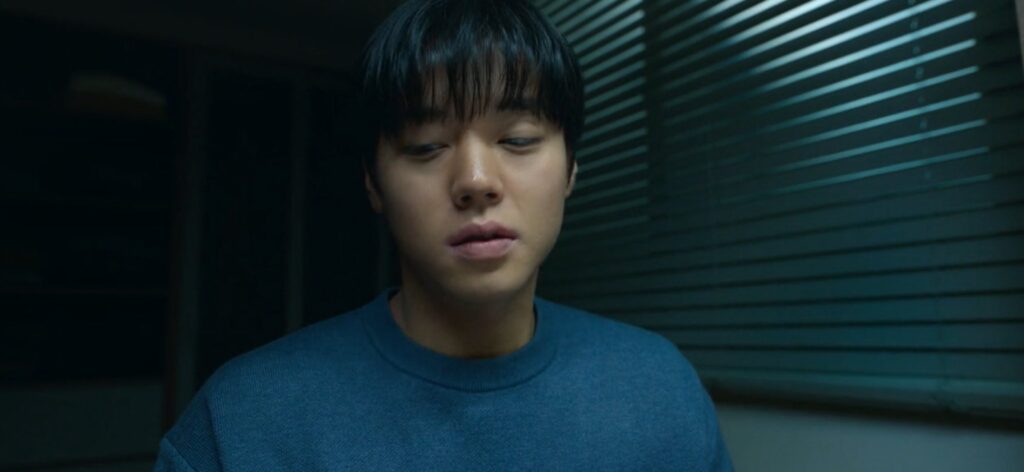
시은의 완벽주의: 수호를 그의 또 다른 완벽함으로 본 관점
유튜브 채널 코멘터들은 늘 심도있는 댓글을 달아준다. 내가 일전에 보지 못했던 앵글로 같은 작품을 해석한다.
The commenters on my YouTube channel always leave such insightful responses. They interpret the same work from angles I hadn’t even thought of before.
시은은 완벽주의자이며, 자신을 갉아 먹으면서까지 완벽에 가까우려고 하는 유형의 사람입니다. 그는 맹목적일 정도로 완벽하려고 하고, 그 완벽함을 위해 삶의 기본적인 생리와 같은 (먹는 것, 자는 것, 건강한 인간관계 및 친구들과의 교류 등) 점을 희생하는데 본인이 추구하는 완벽함이 흐트러지면 정서적으로 감당할 수 없기 때문입니다. 극 초반에는 시은의 목표는 오로지 명문 대학에 진학하는 것처럼 보였습니다. 실제로, 영빈이 ‘말하지마… 우리 내신에 영향 간다, 너 대학 가야지?’라고 협박했을 때 그는 그 말에 순순히 따를 수 밖에 없었습니다. 하지만, 성적이라는 자신의 작품에 흠집이 하나 생기자 바로 미쳐버렸습니다. 그 다음엔 난생 처음으로 소중한 친구들이 생겼습니다. 범석과 수호. 수호가 코마에 빠진 이후로 이제는 단순한 흠집이 아니라 자신의 모든 것이 사라졌다고 느꼈습니다. 그래서 시은의 폭발은 수호를 너무 아껴서만이 아니라, 자신의 새로운 ‘작품’을 너무 과하게 보호하다 그게 실패하고 난 후 어쩔 줄 모르는 괴성같이 들렸어요.
Si-eun is a perfectionist – the type who’ll tear himself apart trying to get as close to perfection as possible. He’s blindly obsessed with being perfect, and he’ll sacrifice basic life necessities (eating, sleeping, healthy relationships and hanging out with friends) for that perfection because he literally can’t handle it when his pursuit of perfection gets thrown off track. Early on in the series, Si-eun’s goal seemed to be solely about getting into a prestigious university. In fact, when Yeong-bin threatened him with “Don’t tell the teacher… it’ll mess with our grades, and you need to get into college, right?” he had no choice but to go along with it. But the moment his grades – his “masterpiece” – got even the tiniest scratch, he completely lost it. Then, for the first time in his life, he had precious friends. That was Beom-seok and Su-ho, but after Su-ho slipped into a coma, it wasn’t just a simple scratch anymore – he felt like everything he had was gone. So Si-eun’s explosion wasn’t just because he cared too much about Su-ho, but because he’d been protecting his new “masterpiece” way too intensely and when that failed, it came out like this desperate, almost inhuman scream of not knowing what to do.

요새 화장실에 앉아 휴대폰을 들여다보는 시간이 점점 길어지고 있는 이유가 바로 코멘터들의 깊은 감상 때문인데, 이 코멘트를 읽고 처음에 이 드라마를 보라며 권유해준 심리상담사 친구와 시은이의 심리에 대해 깊은 대화를 나누게 되었다. 친구는 실제로 청소년들과 대화하다보면 드라마에서 다룬 폭력이나 붕괴되는 심리보다 더 버라이어티한 정신질환이나 배경에 대해서 듣는다며, 실상 드라마에서 보여지는 10대들의 문제는 단편적인 것에 지나지 않는다고 덤덤히 말해주었다. 내가 이미 초연히 떠나온 10대 시절에 과연 나는 어떠했는지… 돌아보게 하였다.
The reason I’ve been spending longer and longer stretches in the bathroom scrolling through my phone lately is because of these commenters’ deep insights. After reading this comment, I ended up having an in-depth conversation about Si-eun’s psychology with my psychologist friend who originally recommended this drama to me. She casually mentioned that when she actually talks with teenagers, she hears about mental health issues and backgrounds that are way more varied than the violence and psychological breakdowns shown in the drama – that what the series portrays about teenage problems is really just scratching the surface. It made me look back and wonder what I was actually like during my own teenage years, which I’ve long since moved on from.
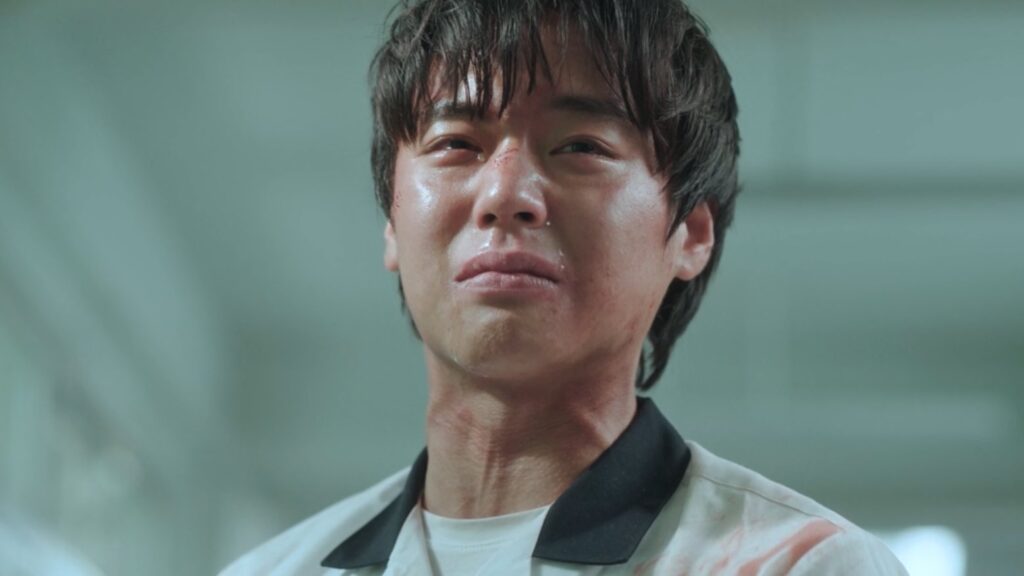
어린 시절 트라우마와 부모와의 애착 문제
아래 코멘트들은 내가 약한영웅 캐릭터들을 좀 더 심리적인 측면에서 분석해볼 수 있게 해준 의견이다.
The comments below are perspectives that helped me analyze Weak Hero characters from a more psychological angle.
어린 시은이 부모의 싸움을 엿들었던 장면에서, 부모들은 분명히 시은을 낳을지 말지를 놓고 싸우고 있었고, 둘 다 아이를 낳기로 한 결정을 분명히 후회하고 있었다. 시은이 팔이 부러졌을 때였는데, 남편은 아내에게 아이가 이 지경이 될때까지 어디에 있었냐며 책임을 전가하고 있었고, 아내는 ‘당신과 함께 양육하기로 했으니까 낳지 않았겠느냐’ 짜증이 치밀어 올라 대꾸했다. 그러자 남편은 아이, 즉 시은이 이렇게 자주 다칠 줄은 몰랐다며 얼굴을 찌푸린다.
In the scene where little Si-eun overhears his parents fighting, they were clearly arguing about whether or not they should have had him in the first place, and both of them were obviously regretting their decision to have a child. This was when Si-eun had broken his arm, and the husband was passing the buck to his wife, asking where she was while their kid got hurt to this extent. The wife snapped back in frustration, “If we weren’t going to raise him together, I wouldn’t have had him.” Then the husband grimaced and said he had no idea that Si-eun – their child – would get hurt this often.
어린 아이가 부모가 자신을 낳은 것을… 후회한다는 말을 직접적으로 엿듣는다고 상상해보라. 이건 단순한 감정적 방치라고 하기에 부족하다. 아이가 소년으로 자라나는 과정에서 그가 세상과 사회 그리고 사람과 교류하는 방식에 근본적인 영향을 줄 수 있을 정도의 감정적 핵폭탄을 던진 셈이다.
Imagine a little kid directly overhearing their parents say they regret… having him in the first place. This goes way beyond simple emotional neglect. It’s like dropping an emotional nuclear bomb that could fundamentally shape how that child interacts with the world, society, and people as he grows from a kid into a young man.
어린 시은은 커리어로 인하여 바쁜 부모에게 있어 자신이 원치 않는 존재이고, 실망스럽고 불편한 문제라고 확신했을 것이다. 그래서 방으로 가서 문을 잠그고 수학 문제에 강박적일 정도로 집착하며 풀어내기 시작했다. 부모가 자신을 원하지 않는다는 사실을 인지하고 난 후 생긴 일종의 대처 메커니즘이었다.
Little Si-eun must have become convinced that to his career-obsessed, busy parents, he was an unwanted burden – a disappointing and inconvenient problem. So he retreated to his room, locked the door, and started obsessively working through math problems. It was a kind of coping mechanism that kicked in after he realised his parents didn’t want him.
실제로 시은의 특성을 보면 – 학업에 대한 지나칠 정도로 과도하고 강박적인 집중, 부모의 대화에서 명시적으로 언급되는 어린시절 갑자기 정신을 잃고 쓰러졌다는 과거의 에피소드 (아마 감각 과부하로 인한…), 스스로를 사회 (학교에서는 어떠한 친구도 사귀지 않는) 적으로 고립시키고, 특히 분노가 치밀 때 감정을 조절하기가 어려움, 자신만의 규칙이 깨질 때의 극도로 치닫는 스트레스의 강도 – 이 모든 것들이 어느정도 자폐 스펙트럼의 특징일 수도 있다는 점이 여러 코멘트에서 언급이 되었었다.
Looking at Si-eun’s actual characteristics – his obsessively excessive focus on academics, the childhood episodes his parents explicitly mention where he would suddenly lose consciousness and collapse (probably from sensory overload…), how he socially isolates himself (not making any friends at school), his difficulty regulating emotions especially when anger builds up, and the extreme intensity of stress he experiences when his own rules get disrupted – several commenters have pointed out that all of these could be signs that he’s somewhere on the autism spectrum.
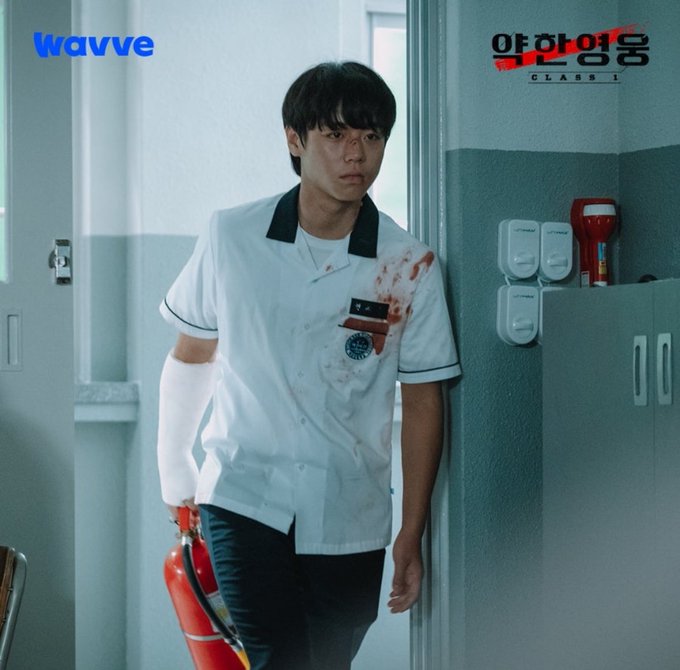
수호의 등장과 시은의 첫사랑
친구는 시은의 폭력적 행동에 대해 이렇게 분석했다:
My friend analyzed Si-eun’s violent behavior like this:
시은의 내재된 분노는 어렸을 적부터 이어진 부모와의 애착 장애에서 비롯된 것 같다. 물론 드라마에서 명시적으로 언급하지 않지만, 시은에게서는 세상에 대한 어떠한 기대도 발견되지 않고, 수면이나 제대로 된 식사 등 기본적인 일상의 규칙을 전혀 지키지 않는다는 점에서 자기 혐오의 그림자도 드리워져 있으며, 학교에서는 (아마 초등학교, 중학교 때 역시 마찬가지였을 것이다) 그 누구와도 교류하지 않는다. 학업 성적은 부모에게 있어 자신의 가치를 증명하는 유일한 방법이었음이 분명한데, 시험지의 완벽한 동그라미들은 이런 극단적인 소년에게 있어 심리적인 안정감을 주고 있었다. 일진무리들이 시은이 강박적일 정도로 고수해놓은 자신만의 규칙, ‘동그라미’를 건드리며 위협하고 마지막엔 깨뜨리는 데 성공했을 때, 시은은 분노를 넘어 공포를 느꼈다. 그에게 있어선 죽음에 가까운 두려움이었을테고, 자신이 강박적일 정도로 집착하던 완벽한 ‘작품’이 위협받는 것이나 다름 없었다. 그래서 코너로 몰린 동물처럼 반격한 거다. 물론 그 반격을 전혀 통제하지 않았다.
Si-eun’s deep-seated anger seems to stem from attachment disorders with his parents that go way back to childhood. Obviously the drama doesn’t spell it out, but you can see that Si-eun has zero expectations from the world, he completely ignores basic daily routines like proper sleep and meals – there’s this shadow of self-hatred hanging over him, and at school (probably going back to elementary and middle school too) he doesn’t interact with anyone. Academic grades were clearly his only way to prove his worth to his parents, and those perfect circles on his test papers were giving this extreme kid some kind of psychological stability. When the bullies started messing with and threatening Si-eun’s obsessively guarded personal rule – his ‘circles’ – and finally succeeded in breaking them, Si-eun felt something beyond anger – he felt terror. For him, it was a fear close to death, like his obsessively perfect ‘masterpiece’ was under attack. So he lashed back like a cornered animal. And obviously, he had zero control over that retaliation.
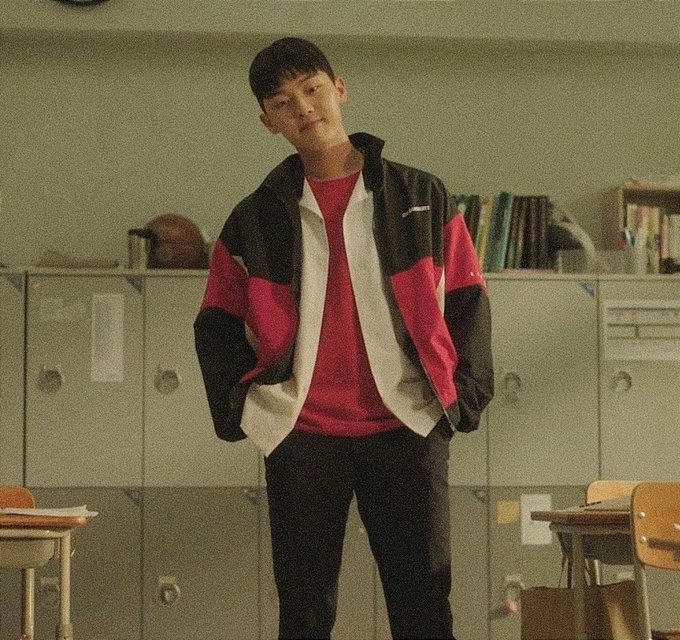
그리고 마치 버터를 손쉽게 가르듯 시은의 삶을 벌컥 열며 수호가 나타났다. (연출 상으로는, 배달을 잘못하여 시은 집의 현관을 열게 된다.)
부모에게서 응당 받았어야할 깊은 애착, 행복, 안정감 그리고 사랑을 짧은 기간 홍수처럼 느끼게 되었는데, 사실 홍수라고 말하기 부족할 정도의 넘실거리는파도였다. 친구가 상담하는 아이들 사이에서는 첫사랑이나 이성 혹은 동성의 친구 관계에서 뭐라 통제하기 어려운 감정에 휩쓸려 학업에 어려움을 겪거나, 애착의 대상과 점점 멀어질 때 극단적인 선택에 대해 상상하다 상담을 해오는 일은 친구의 직업 세계에 있어서 놀랄만한 일은 아니라고 한다 (…내가 그 시절을 너무 멀리 떠나온 걸까…?) 물론 극에서 다룬 시은에게 있어서의 수호는 신이 이 가여운 소년에게 내려준 ‘선물’에 가깝고, 친구가 일상적으로 만나는 청소년들은 정말 현실세계의 부스러기들을 밟고 어쩔 줄 몰라 상담실로 불려온 진짜 아이들이다.
And then Su-ho came slicing through the boy’s walls like a knife through butter, suddenly throwing open the door to Si-eun’s world. (In the narrative device of a misdirected food delivery to Si-eun’s home.)
The deep attachment, happiness, stability, and love that he should have rightfully received from his parents – he experienced all of it in a short period like a flood, but honestly, calling it a flood doesn’t even do it justice – it was more like overwhelming waves. My friend says that among the kids she counsels, it’s not unusual at all in her line of work to see teens coming in for counseling because they’ve gotten swept up in uncontrollable emotions during first love or same-sex/opposite-sex friendships that mess with their academics, or because they start imagining extreme choices when they feel their object of attachment drifting away (… have I drifted too far from those days…?). Of course, Su-ho for Si-eun in the drama was like a ‘gift’ that God gave to this poor boy, while the teenagers my friend meets daily are real kids who’ve been stepping on the broken pieces of the real world and don’t know what to do with themselves when they get called into the counseling room.
물론 시은의 “작은 영웅” 수호의 등장은 시은에게 있어 신이 내린 선물이었다… 이렇게 수호와 범석이, 아마도 이 소년의 첫 친구들이었을, 기적처럼 그의 삶에 나타났다. 그래서 부모가 주지 못한 애착, 안정감, 그리고 사랑을 그토록 짧은 기간에 한꺼번에 경험하게 되었다. 홍수라고 하기에도 부족했다—친구 역시 “파도” 같다고 표현했다.
Of course, the appearance of Su-ho, Si-eun’s “little hero,” was a gift from God for Si-eun… This is how Su-ho and Beom-seok—probably this boy’s first friends—appeared like a miracle in his life. So the attachment, stability, and love that his parents couldn’t provide, he experienced all at once in that short period. Calling it a flood wouldn’t be enough—my friend also described it as being like “waves.”

So the attachment, stability, and love that his parents couldn’t provide, he experienced all at once in that short period.
솔직히 친구가 사용한 전문적인 심리학 용어를 100% 이해할 수는 없었지만, 그녀가 나에게 전달하고자 하는 분석이 무엇인지는 대략 파악할 수 있었다. 수호는 잘못된 주소로 배달을 하다가 꽁꽁 닫혀있던 현관문을 열고 들어왔는데, 유수민 감독이 밝힌 바와 같이 이는 데미안과 싱클레어의 관계에서 차용한 것이었다… 만약 수호가 실수로 시은의 문을 찾아오지 않았다면… 그가 껍질을 깨고 나올 수 있었을까?
To be honest, I couldn’t understand 100% of the professional psychological terminology she used, but I roughly grasped what kind of analysis she wanted to convey to me. Su-ho opens that tightly shut front door when he mistakenly delivers to the wrong address, and as director Yoo Soo-min revealed, this was borrowed from the relationship between Demian and Sinclair… If Su-ho hadn’t mistakenly found his way to Si-eun’s door… would he have been able to break out of his shell?
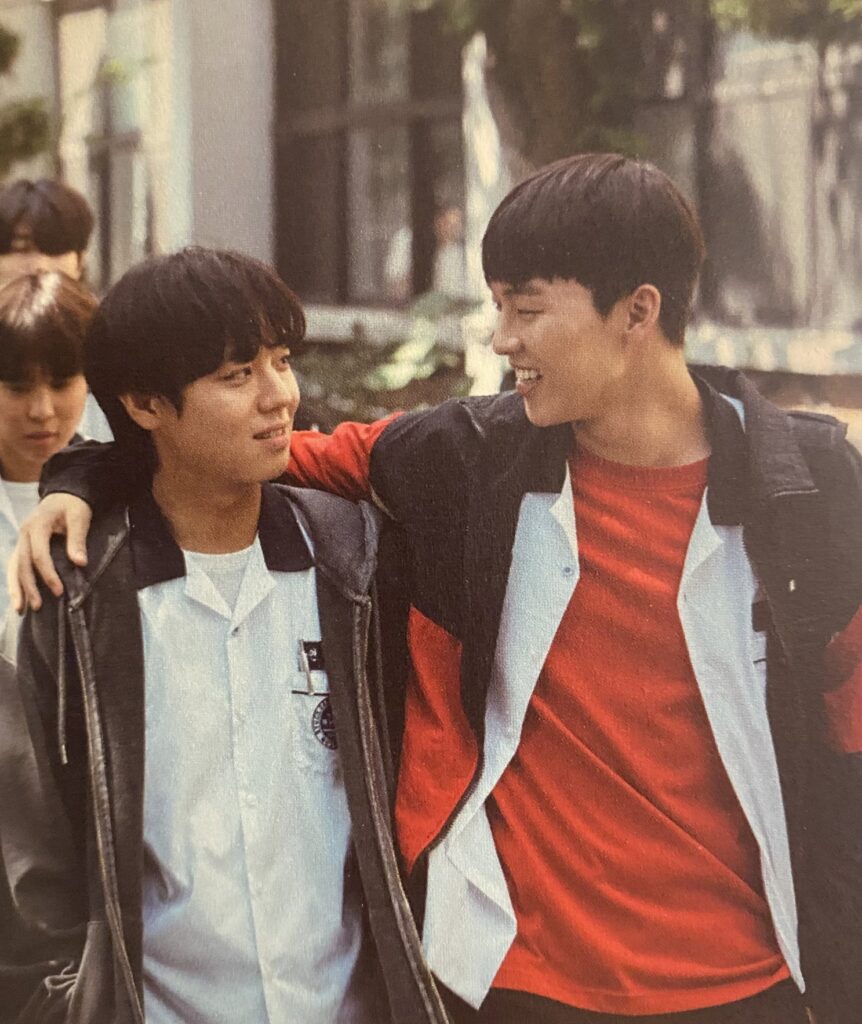
친구가 말하길, 불현듯 현관문을 열고 들어와 벌컥벌컥 물을 마시던 수호로 인하여, 그 견고한 껍질을 깨고 나온 건 좋았지만, 시은과 수호의 관계는 우정이라고 부르기에는, 너무 감정적으로 격렬하다고 했다. 더 정확히 말하면, 시은이 수호에게 느낀 감정의 폭이 지나치게 격렬하고 파도 같아서, 만약 두 소년이 실제 현실에서 존재하는 친구 사이였다면, 필연적으로 시은이 수호에게 지나치게 집착하거나 감정적으로 의존하는 지점이 왔을 것이라고 지적했다. (이 지점에는 아무래도 연출상으로 명시적으로, 언어적으로 언급되진 않았지만 드라마를 심도있게 여러차례 본 팬이라면 자연스럽게 알게 되는 시은의 정신적인 문제가 기본적으로 바탕에 깔려있을 것이다…)
My friend said that while it was good that Su-ho – who suddenly barged through the front door gulping down water – helped Si-eun break out of that solid shell, the relationship between Si-eun and Su-ho was too emotionally intense to be called friendship. More precisely, she pointed out that the range of emotions Si-eun felt toward Su-ho was so overwhelmingly intense and wave-like that if these two boys had been friends in the real world, there inevitably would have come a point where Si-eun became overly obsessive or emotionally dependent on Su-ho. (This is where – though never overtly stated in the narrative – the careful viewer who has revisited the drama would sense the foundation of Si-eun’s psychological struggles lying beneath the surface…)

그래서 친구의 관점에서는… 시은이 성적을 생명줄처럼 여기는데, 일진 무리들의 방해로 인해 조금이라도 시험지의 ‘동그라미’가 일그러지거나 흠집이 나지 않도록 맹목적으로 집중했던 것처럼, 소년의 완벽주의적 성향과 자신에게 매우 소중하다고 여겨지기 시작한 존재에 대한, 그것이 ‘성적’이든 ‘사람’이든, 맹목적인 강박이 또 다른 생명줄인 친구, ‘수호’에게로 향했을 가능성이 높다고 했다. (나도 매우 동의했다…)
So from my friend’s perspective… just like Si-eun had treated his grades as a lifeline, blindly zeroing in on making sure the bullies couldn’t mess with him and that not even the slightest bit of those perfect “circles” on his test papers got warped or scratched up, that same perfectionist streak and blind obsession he’d developed for anything he started holding dear – whether it was “grades” or “people” – would likely have shifted over to his other lifeline, his friend “Su-ho.” (I totally agreed with this…)
덧붙이길, 실제 상담인의 관점에서 시은이 수호에게 보인 애착의 표면만 봐도 이건 시은에게 있어 전적으로 건강한 우정이라고 할 수 없다며, 물론 시은은 친구를 위해 물리적인 폭력도 감수할 만큼 수호를 아꼈지만, 그녀의 관점에서는 자신의 손으로 기꺼이 피를 묻히거나 친구 대신 자신이 폭행을 감수하는 희생 역시도, 안정적인 애착을 경험해본 적 없는 소년이 매우 소중해진 존재가 갑자기 사라질 때 ‘자신에게’ 찾아올 통제 불가능한 붕괴가 오히려 본인이 선택한 물리적인 상해 (자해) 보다 더욱 고통스럽고 견딜 수 없을 것임을 직감하고 있었기에, 미리 선수를 친 절망적인 행동에 더 가까워 보였다고 한다.
She went on to say that from an actual counselor’s standpoint, just looking at the surface of the attachment Si-eun showed toward Su-ho, this couldn’t be written off as completely healthy friendship. Sure, Si-eun cared enough about his friend to put up with physical violence for him, but from her perspective, even his willingness to get his own hands bloody or take beatings in place of his friend came across more like desperate behavior – like this kid who’d never experienced stable attachment was picking up on the fact that the uncontrollable breakdown that would hit him if this precious person suddenly vanished would be way more unbearable than any physical pain he chose to take on himself, so he was getting ahead of it with this kind of desperate preemptive strike.
In other words, Si-eun’s coping mechanism of sacrificing himself to this extent for Su-ho was the most unhealthy thing for Si-eun himself.

수호의 코마: 클래스 1의 결말이 시은에게 진짜 성장의 기회를 준 이유
친구는 시은이 수호를 잃는 트라우마를 겪어야만 했던 것이 매우 훌륭한 연출이라고 했고, 나도 동의하였다. 시은이 스스로에게 더 이상 해를 입히는 방법이 아닌 건강한 방법으로 성숙하기 위해서는 어쨌든 고통스럽지만 또 한번의 성장통을 필연적으로 겪을 수밖에 없었으며, 수호를 코마로 보내버린 것은… (고교 학창시절 절반 이상을 병상에서 보내버린 수호에게는 너무 미안하지만…유 감독님도 말씀하신 것처럼 수호는 오로지 ‘시은’이를 위해서만 움직이는 존재이므로… ‘인공위성’ 정도가 적당할 것 같다…) 드라마적으로 매우 훌륭한 연출 장치였다고 생각한다.
My friend said that Si-eun having to go through the trauma of losing Su-ho was brilliant direction, and I agreed. For Si-eun to mature in a healthy way rather than continuing to harm himself, he inevitably had to go through another painful but necessary growth spurt, and sending Su-ho into a coma was… (sorry to Su-ho, who ended up spending more than half his high school years in bed… but as Director Yoo mentioned, Su-ho exists solely to move for “Si-eun”… so calling him a “satellite” would probably be fitting…) I think it was a dramatically brilliant directorial device.

시은은 클래스1에서 완전히 무너진 후, 간신히 소년원 행을 면했지만, 어디서도 그를 받아주는 곳이 없어 거의 소년원에 가까운 대안학교인 영등포구에 위치한 은장고로 보내졌다. 어쨌든 그 덕분에, 감정적으로 거의 죽어있던 산송장이나 다름없던 시은이 바쿠, 고탁, 준태를 만났고, 이 친구들과의 우정이 – 너무 가깝거나 너무 멀지 않은 – 훨씬 시은에게 이상적인 관계에 대한 영감을 주었으며, 당연히 시은에게도 더 건강한 관계로 다가왔다. ‘그 일’ 이후로 시은으로 하여금 지옥같은 불면의 밤을 보내게 했던, ‘그 링’ 위에서 범석의 손을 놓기로 결정한 것은, 바쿠, 고탁, 준태와 함께 더 지속 가능한 건강한 우정을 쌓아가기 시작했다는 신호이며, 드라마에서 명시적으로 다루진 않았지만 이 작품을 깊이 이해하는 사람이라면 오롯이 느끼고 있던 시은이의 깊은 정신적 트라우마와 정신 질환의 그늘에서도 서서히 벗어나고 있다는 희망을 보여주었다.
After Si-eun completely fell apart in Class 1, with nowhere willing to take him in, he barely dodged juvenile detention and got shipped off to Eunjang High – an alternative school in Yeongdeungpo that was basically like a juvie. But thanks to that, Si-eun, who’d been living like an emotional zombie – practically walking dead – ended up meeting Ba-ku, Go-tak, and Jun-tae, and his friendship with these guys – not too close, not too distant – gave him a much more ideal relationship dynamic to look up to, and naturally came across as a much healthier relationship for Si-eun. His decision to let go of Beom-seok’s hand on “that ring” – the one that had been putting him through hellish sleepless nights ever since “that incident” – showed that he was starting to build more sustainable, healthy friendships with Ba-ku, Go-tak, and Jun-tae. And while the drama didn’t spell it out explicitly, anyone who really gets this show could feel the hope that Si-eun was slowly breaking free from the shadows of the deep psychological trauma and mental illness that had been weighing him down.

His decision to let go of Beom-seok’s hand on “that ring”
클래스 1에서 수호를 잃은 댓가로 시은이 겪은 거대한 정신적인 붕괴는 단순한 비극이 아니라 시은이 겪어야만 했던 심리적인 성장이었다. 껍질을 깨고 나온 새가 껍질을 깨고 나온 것 만으로는 살아갈 수 없다. 어쨌든, 날아가기 위해 거쳐야 하는 필요한 과정처럼 말이다. 소년은 자신의 대처 메커니즘 – 완벽한 성적, 깊은 감정적 애착 대상으로서의 수호 – 에 흠이 가더라도 어쨌든 (이성을 잃지 않고…) 숨쉬는 법을 배우고 노력해야만, 어른으로 성장할 수 있었다. 만약, 소년의 내재된 폭력성이 대처 메커니즘이나 격렬하게 연결되어 있는 감정적 애착 대상에 균열이 가거나 문제가 생길 때마다 발동되어 자해하는 것으로 직결된다면, 소년은 스스로를 온전히 어른으로 성장시킬 수 없었을 것이다.
The massive psychological breakdown Si-eun went through as the price for losing Su-ho in Class 1, and consequently being sent to Eunjang High where he met new friends, wasn’t simply tragedy but the psychological growth Si-eun had to go through—a bird that breaks out of its shell can’t survive just by breaking out. Ultimately, it’s like the necessary process it has to go through to learn how to fly. The boy had to learn and work to live without his coping mechanisms – perfect grades, Su-ho as an object of deep emotional attachment – to truly grow into an adult. If the boy’s inherent violence kept getting triggered and ended up with him harming himself every time his coping mechanisms or the objects of his deeply controlling emotional attachments got damaged or disrupted, he would never be able to grow into an adult.
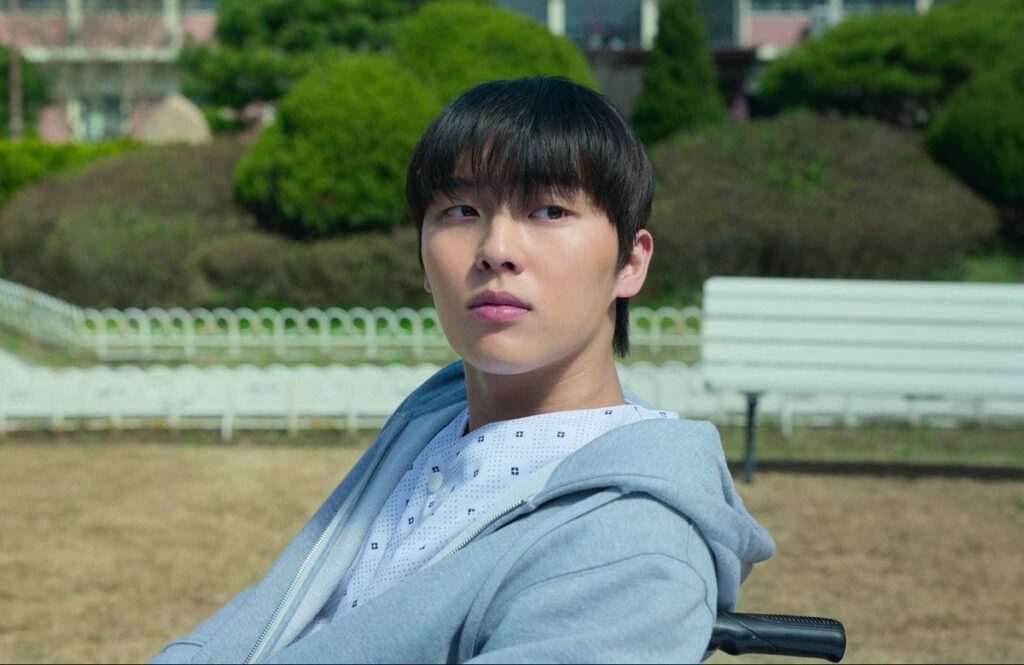
“It looks good”
그러므로, 수호가 긴 잠에서 깨어난 뒤, 친구들과 함께 달려 온 시은을 보고 다른 말이 아닌 “보기 좋네” 라고 던진 것은—의미가 크다. 건강한 관계를 통해 혼자 날 수 있는 새가 된 시은의 성장을 진심으로 대견하게 여기고 축하한 것이다. 실제로 수호의 원래 대사는 “우리 시은이 다 컸네” 였다고 한다.
So when Su-ho woke up from his long sleep and saw Si-eun running over with his friends, the fact that he said “It looks good” out of all things he could have said—carries real weight. He was genuinely proud of and celebrating Si-eun’s growth into a bird that could fly on its own through healthy relationships. Apparently, Su-ho’s original line was supposed to be “Our Si-eun has really grown up.”
시은이 완벽주의자라는 코멘터의 의견으로 돌아가면, 강박적일 정도로 완벽해야하고 맹목적일 정도로 소중한 것이 부숴지지 않게 두려는 시은의 성향은 전체적인 캐릭터 여정에서 일관되게 나타난다. 학업에서 강박적일 정도로 매달리는 완벽주의가 일진들에게 위협받으면서 통제 불가능한 폭력으로 이어졌다. 첫사랑이라는 단어 외에는 달리 정의 내리기 어려운 파도 같은 감정을 가져다준 우정이 여러 위협에 직면하고 결국 상실로 이어져, 궁극적으로 심리적인 붕괴로 떨어진다. 하지만 클래스 2에서 새로운 친구들로 인하여 있는 그대로의 불완전함을 배우고 자신에게 더욱 건강한 관계를 형성해 나가는 성장을 보여준다.
Going back to the commenter’s take on Si-eun being a perfectionist, Si-eun’s tendency to be obsessively perfect and blindly protective of what he holds dear shows up consistently throughout his entire character journey. His obsessive academic perfectionism gets threatened by the bullies, leading to an uncontrollable violent explosion. The friendship that brought wave-like emotions that can hardly be defined as anything other than first love faces multiple threats and eventually leads to loss, ultimately plunging him into complete psychological breakdown. But in Class 2, thanks to his new friends, he shows growth by learning to accept imperfection as it is and forming healthier relationships for himself.

만약 그가 자신의 몸에 상처를 내고 피를 흘리면서 자신의 작품들을 계속 보호했다면 – 그것이 완벽한 ‘동그라미’ 이든 강한 애착의 ‘상대’이든) 그는 절대 온전히 성장할 수 없었을 것이고, 시은을 아끼는 사람들도 소년이 스스로를 자해하는 것을 원하진 않을 것이다.
If he had kept protecting his masterpieces by scarring his own body and shedding blood – whether those were perfect “circles” or objects of intense attachment – he never could have grown up properly, and the people who care about Si-eun wouldn’t want the boy to keep hurting himself either.
치유 속의 희망
결국 시은의 이야기, 서사를 아름답게 하는 것은 복수나 폭력이 아니라 이 소년의 성장이다.
What ultimately makes Si-eun’s story and narrative beautiful isn’t the revenge or violence, but this boy’s growth.
시즌 2는 바쿠, 고탁, 준태와 건강한 인간관계와 우정을 형성하는 법을 배우고, 잠 못 들게 했던 링에서 범석에게 진짜 작별을 고하며, 은장 친구들의 도움과 자신의 의지로 무겁게 내리 누르던 죄책감에서 스스로를 용서하고 놓아주는 진정한 회복력을 기르는 것으로 마무리되었다. 시은은 이제 자신은 새로운 친구들과 함께 지속 가능한 뭔가를 만들어갈 수 있다고 스스로를 설득할 만큼 성장한 것 같다. 바쿠 아버지의 말처럼 “그 놈들한테 잘해, 그 놈들은 평생 갈 친구들이야…”
Season 2 wraps up with him learning to form healthy human relationships and friendships with Ba-ku, Go-tak, and Jun-tae, finally saying goodbye to Beom-seok on that ring that had kept him awake through sleepless nights, and building true resilience through healing with his own strength and help from his Eunjang friends, forgiving himself and letting go of the crushing guilt that had been weighing him down. Si-eun seems to have grown enough to convince himself that he can build something sustainable with his new friends. As Ba-ku’s father said, “Be good to those guys, they’re friends for life…”
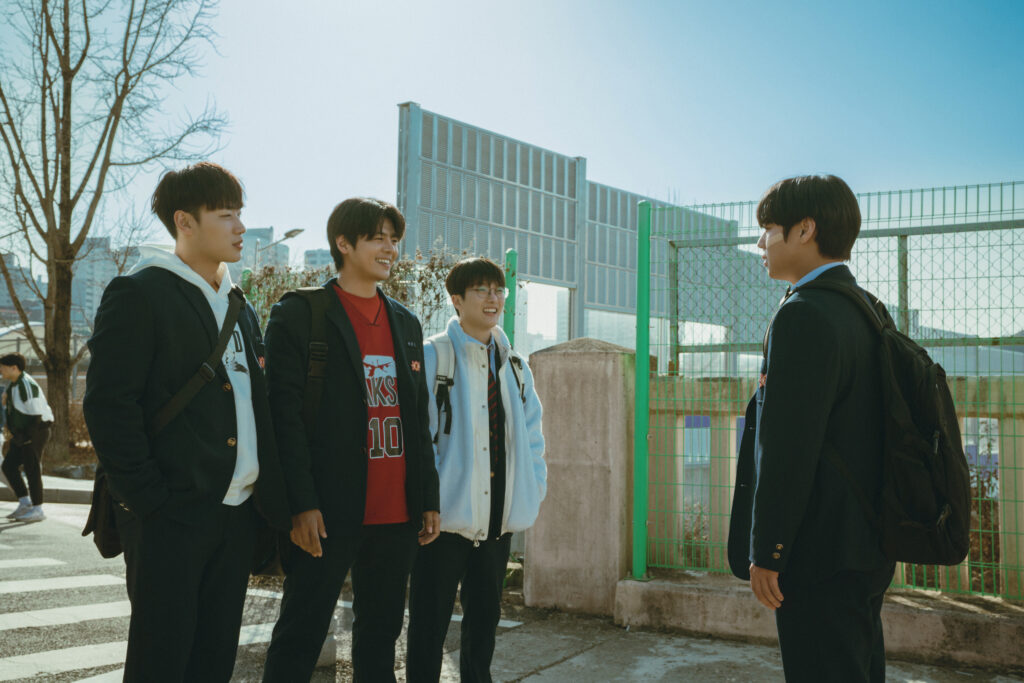
강박적으로 혹은 지나치게 아끼는 자신의 “생명줄”에 문제가 생겨도, 통제하지 못하는 폭력을 드러내다 자신을 잃지 않으면서도, 진정으로 사랑받을 수 있다는 희망을 다시 한번 깨닫게 된다. 그리고 시은의 성장이 무르익자 수호가 다시 깨어난다. “잘 살았냐?” “보기 좋네”
Even when problems arise with his obsessively or overly cherished “lifelines,” he realizes once again the hope that he can be truly loved without losing control, lashing out violently, and losing himself in the process. And as Si-eun’s growth ripens, Su-ho wakes up again. “Have you been living well?” “It looks good.”
Want to hear these lines with Su-ho’s actual voice and delivery? 🎧 Watch the full analysis with original audio clips here
The fully developed version of this idea is available here: What If Su-ho Had Never Fallen Into a Coma?
⚠️ Site Policies & Legal Information
✅ About JennieKdrama.com: This blog provides personal fan analysis and reviews of K-dramas, focusing on school action series like ‘Weak Hero.’ All content represents individual opinions and interpretations from a fan perspective, unrelated to official production teams.
⛔️ Copyright Disclaimer: All drama footage, images, and references belong to their respective copyright holders including streaming platforms and original creators. Materials are used minimally for educational criticism and analysis with no intention of copyright infringement.
🚫 Privacy Policy: This site follows standard web policies and does not directly collect personal information beyond basic analytics for content improvement. We use cookies to enhance user experience and may display advertisements.
📳 Contact: For questions or concerns, please use the comment sections or contact forms provided. This is fan-created content respecting all original copyrights – we are not responsible for any losses or damages resulting from our content interpretations.
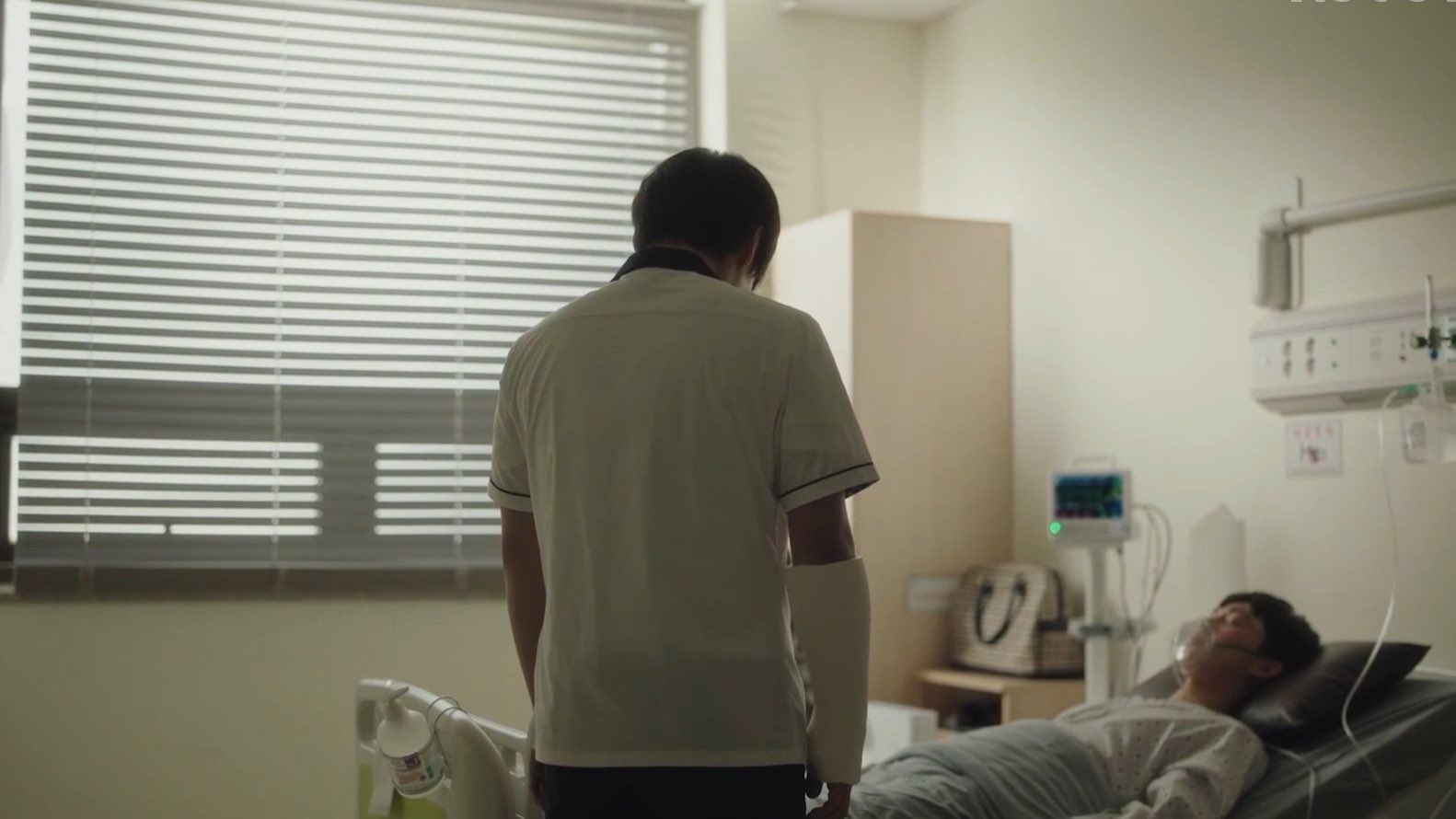
답글 남기기